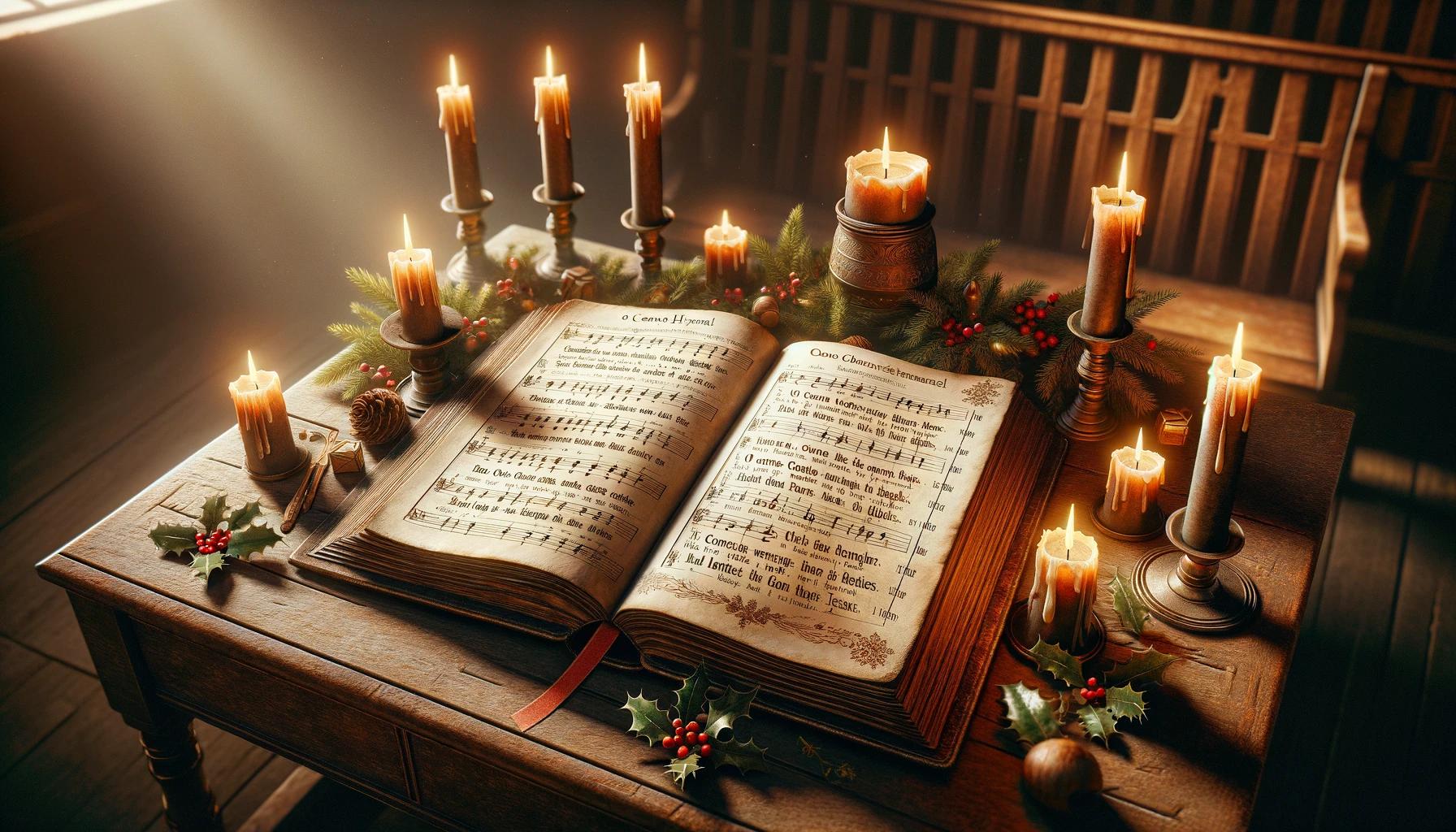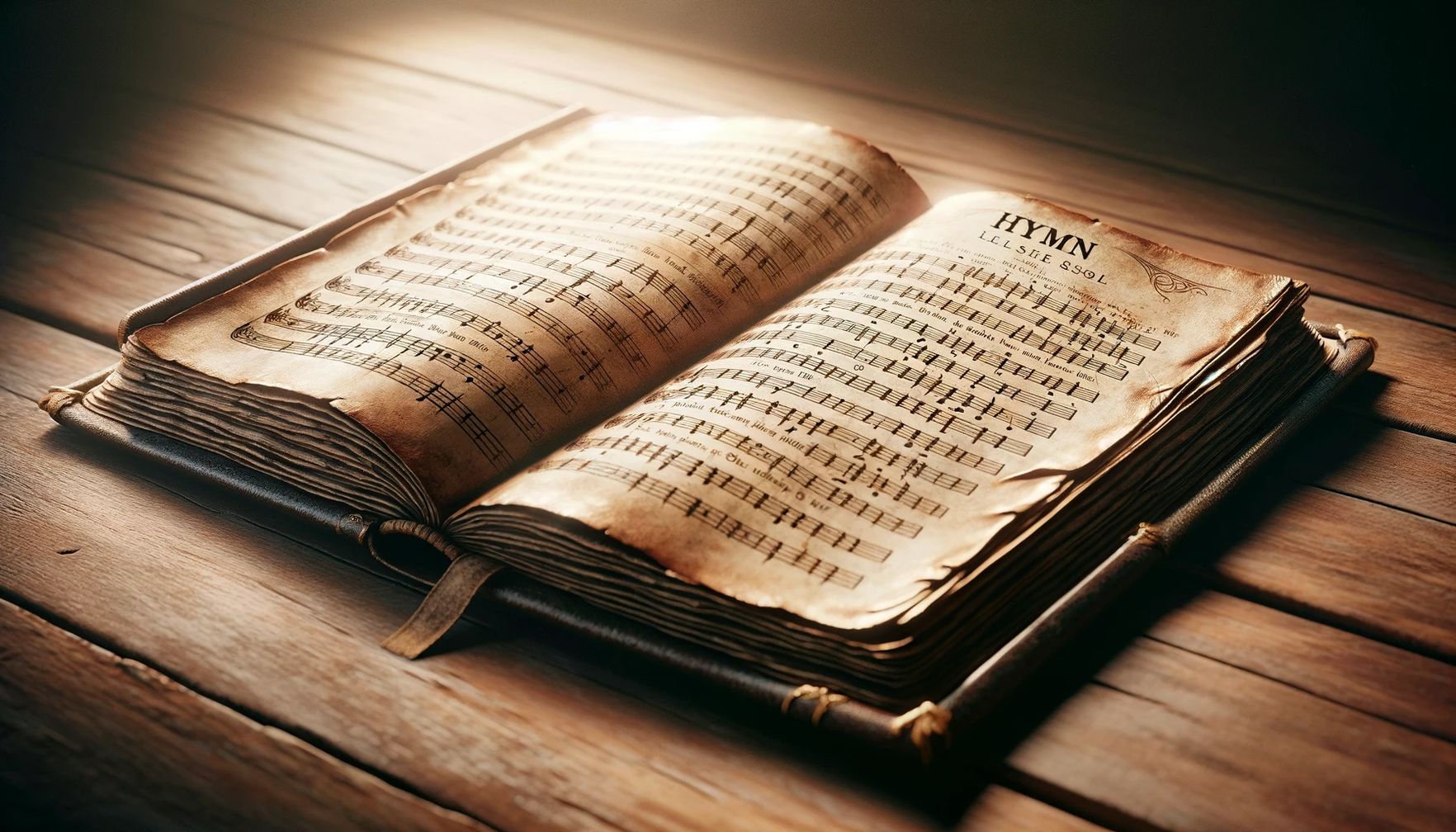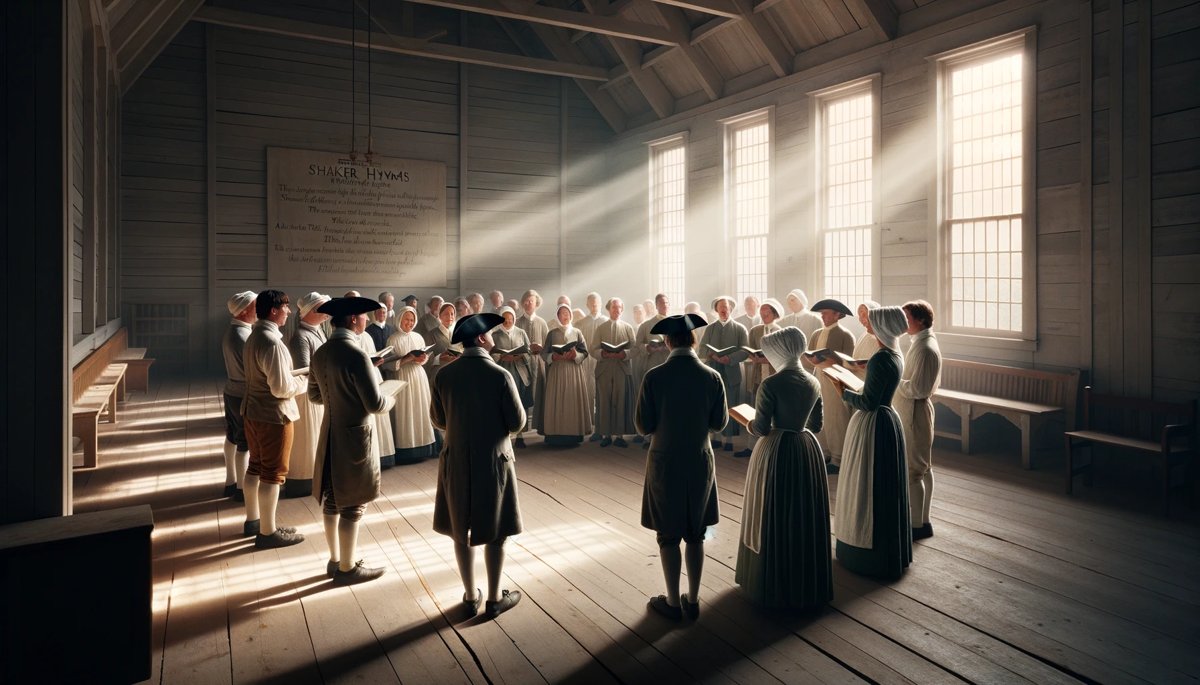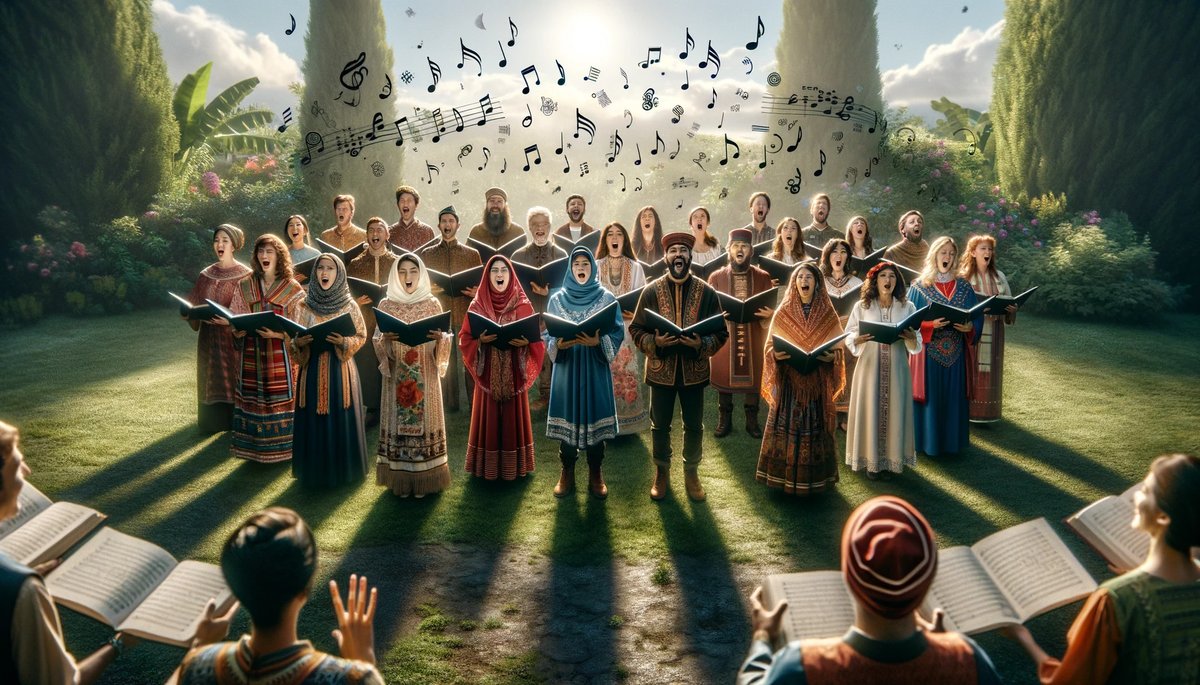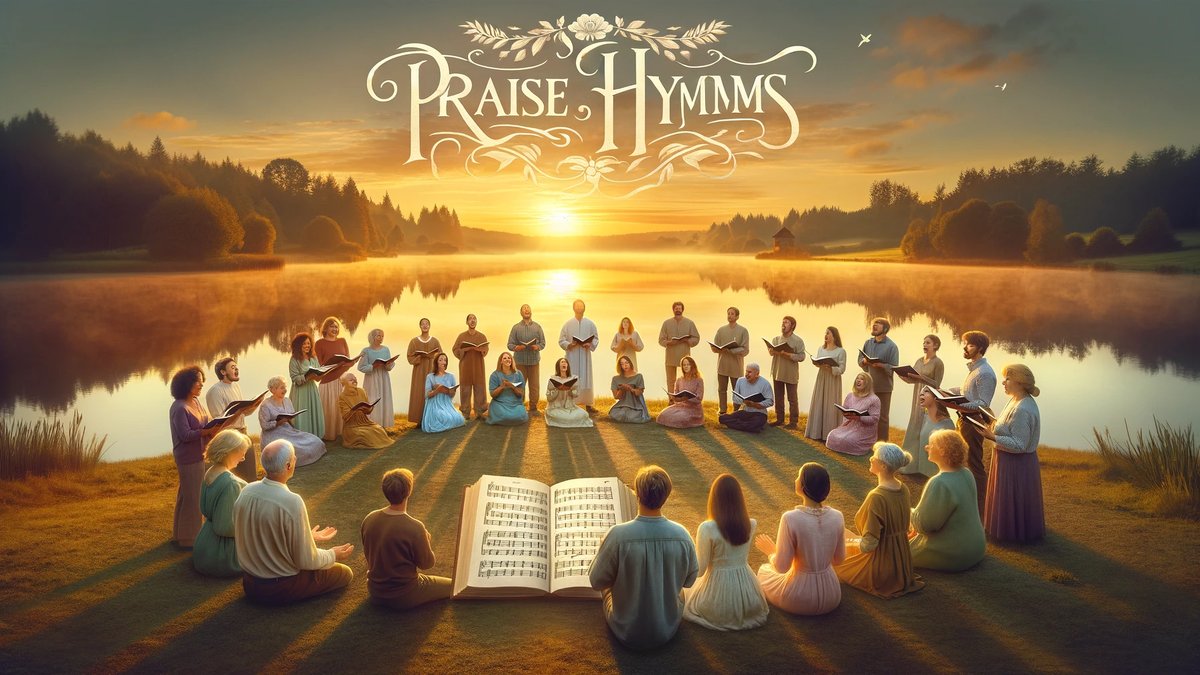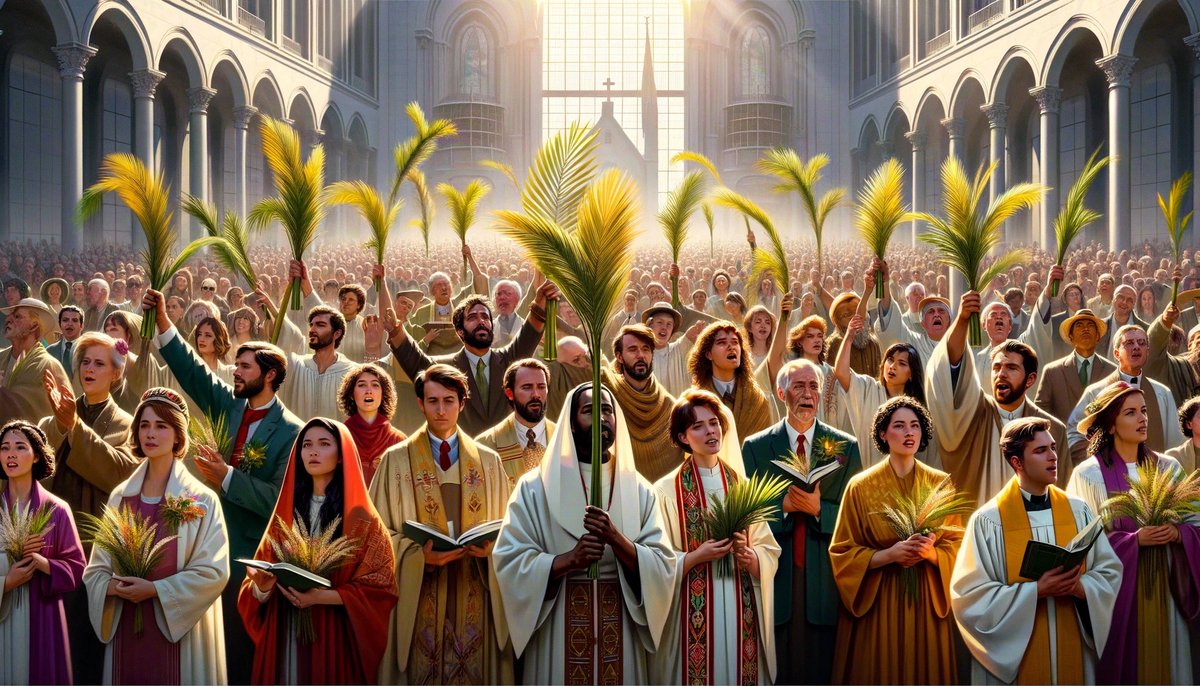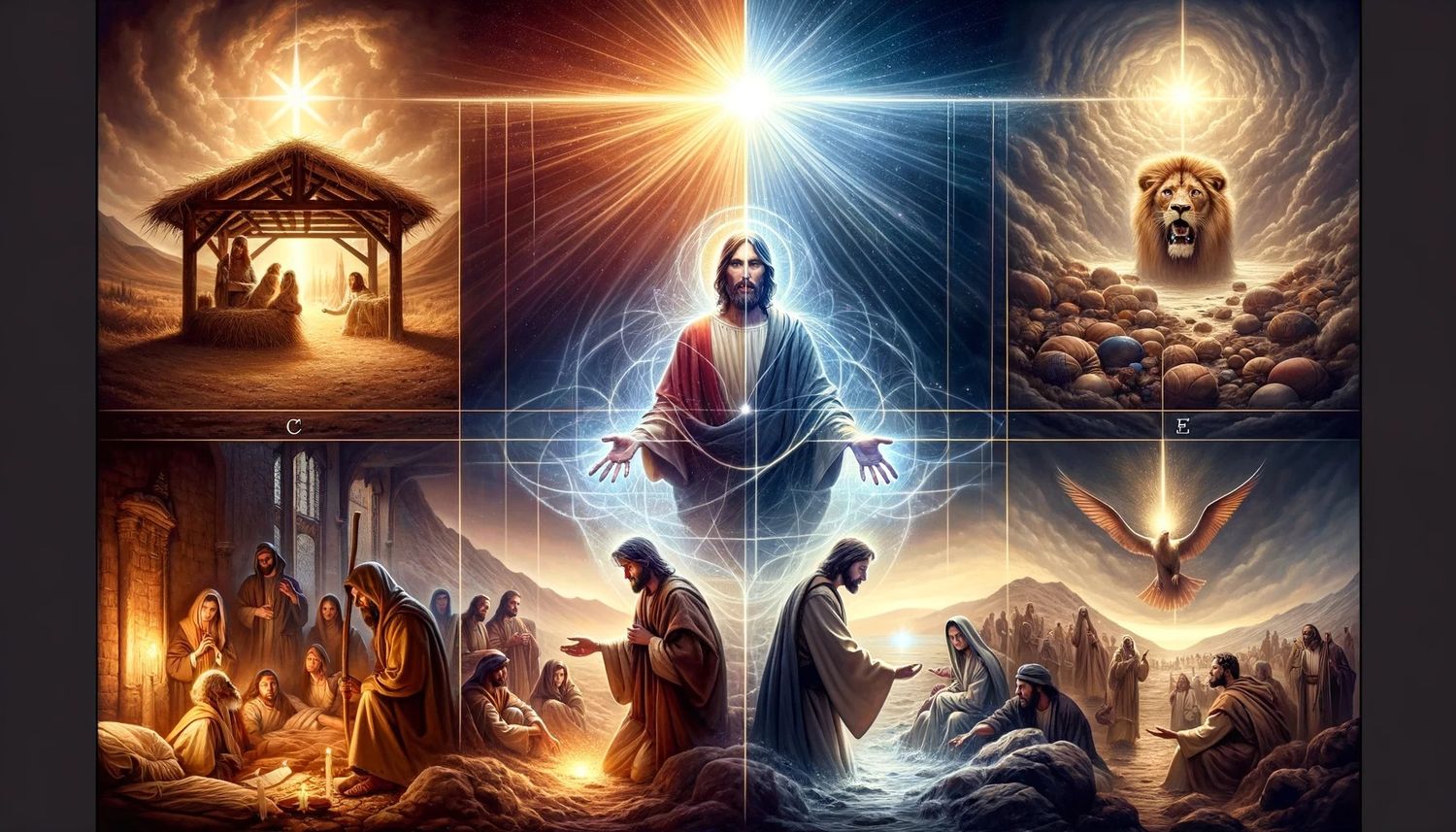Home>Arts and Culture>What Are Some Popular Black Gospel Hymns


Arts and Culture
What Are Some Popular Black Gospel Hymns
Published: March 7, 2024
Ericka Andersen, an editor at Christian.net, expertly merges digital strategy with content creation, focusing on faith and societal issues. Her communication skills enhance the platform's engaging narratives, fostering meaningful dialogue on belief's impact on society.
Discover the most beloved Black gospel hymns that have left a lasting impact on arts and culture. Explore the rich history and significance of these timeless musical treasures.
(Many of the links in this article redirect to a specific reviewed product. Your purchase of these products through affiliate links helps to generate commission for Christian.net, at no extra cost. Learn more)
Table of Contents
Introduction
What Are Some Popular Black Gospel Hymns?
Black gospel hymns have been an integral part of African American religious and cultural expression for centuries. These hymns are not only powerful expressions of faith and spirituality but also serve as a source of comfort, hope, and inspiration for many people. In this article, we will explore the history of black gospel hymns and highlight some of the most popular and beloved hymns in this tradition. Whether you are a devout Christian or simply appreciate the beauty of gospel music, these hymns are sure to uplift your spirit and touch your soul.
The History of Black Gospel Hymns
-
Origins: Black gospel hymns have their roots in the African American religious experience, which dates back to the time of slavery in the United States. Enslaved Africans brought with them their own musical traditions, which were infused with elements of Christian hymnody upon their conversion to Christianity. This fusion of African musical styles and Christian hymns gave birth to what we now know as black gospel music.
-
Spirituals: The earliest form of black gospel music can be traced back to the spirituals sung by enslaved Africans. These spirituals served as a means of expressing faith, hope, and resilience in the face of unimaginable hardship. They were often characterized by call-and-response patterns, powerful vocal delivery, and themes of liberation and deliverance.
-
Evolution: Over time, black gospel music evolved to incorporate elements of blues, jazz, and other musical genres, resulting in a rich and diverse musical tradition. The 20th century saw the rise of gospel choirs and influential gospel artists who brought this music to a wider audience, solidifying its place in the fabric of American culture.
-
Impact: Black gospel hymns have not only played a significant role in the worship practices of African American churches but have also made a profound impact on the music industry as a whole. Their influence can be seen in various genres, including soul, R&B, and even rock and roll, demonstrating the far-reaching legacy of black gospel music.
-
Legacy: Today, black gospel hymns continue to be cherished for their emotive power, spiritual depth, and cultural significance. They serve as a testament to the enduring faith and resilience of the African American community and remain a source of inspiration for people of all backgrounds.
Understanding the history of black gospel hymns provides insight into the cultural, spiritual, and musical significance of this tradition, shedding light on its enduring appeal and influence.
"Amazing Grace"
-
Historical Significance: "Amazing Grace" is arguably one of the most iconic and beloved black gospel hymns. Its origins can be traced back to the 18th century when it was penned by John Newton, a former slave trader who underwent a profound spiritual transformation. The hymn's powerful message of redemption and forgiveness resonated deeply with the African American community, particularly during the era of slavery and the civil rights movement.
-
Emotive Lyrics: The lyrics of "Amazing Grace" speak to the universal human experience of seeking divine mercy and finding solace in the promise of salvation. The hymn's poignant verses, such as "I once was lost, but now am found; Was blind, but now I see," encapsulate the themes of spiritual awakening and deliverance, making it a source of comfort and hope for countless individuals.
-
Musical Adaptations: Over the years, "Amazing Grace" has been reinterpreted in various musical styles, from traditional gospel renditions to soulful interpretations by artists such as Aretha Franklin and Mahalia Jackson. Its enduring popularity and adaptability have cemented its status as a timeless classic that transcends cultural and religious boundaries.
-
Cultural Impact: The hymn's enduring legacy extends beyond its religious significance, as it has been embraced as an anthem of resilience and perseverance. Its inclusion in the repertoire of civil rights activists and its use in commemorating significant historical events underscore its role as a symbol of hope and solidarity.
-
Continued Reverence: Today, "Amazing Grace" continues to be a staple in the worship services of black churches and remains a poignant reminder of the enduring power of faith and the triumph of the human spirit over adversity. Its enduring relevance is a testament to the enduring impact of black gospel hymns on the collective consciousness.
The enduring appeal of "Amazing Grace" lies in its ability to resonate with people from all walks of life, transcending cultural, racial, and religious boundaries to convey a message of grace, redemption, and the enduring power of faith.
"Precious Lord, Take My Hand"
-
Historical Significance: "Precious Lord, Take My Hand" holds a revered place among black gospel hymns, with its origins rooted in the profound experiences of its composer, Thomas A. Dorsey. Known as the "Father of Black Gospel Music," Dorsey penned this hymn in the midst of personal tragedy, following the loss of his wife and infant son. The hymn's poignant lyrics and soul-stirring melody reflect Dorsey's plea for divine guidance and solace during a time of profound grief and despair.
-
Emotive Lyrics: The lyrics of "Precious Lord, Take My Hand" encapsulate a heartfelt cry for strength and comfort in the face of adversity. Lines such as "Lead me on, let me stand" and "I am tired, I am weak, I am worn" resonate with the universal human experience of seeking divine support in moments of hardship and uncertainty. The hymn's raw emotional honesty and unwavering faith have endeared it to countless individuals facing their own trials and tribulations.
-
Musical Influence: The soulful melody and heartfelt lyrics of "Precious Lord, Take My Hand" have inspired numerous artists across various genres, from gospel and blues to contemporary Christian music. Its enduring popularity is a testament to its ability to evoke a profound sense of spiritual connection and emotional resonance. The hymn's timeless appeal lies in its ability to transcend musical boundaries and speak to the depths of the human soul.
-
Cultural Legacy: "Precious Lord, Take My Hand" has left an indelible mark on the cultural landscape, serving as a source of solace and inspiration during pivotal moments in history. It was notably a favorite hymn of Dr. Martin Luther King Jr., who often requested it to be sung at civil rights gatherings, underscoring its role as a symbol of hope and resilience in the face of adversity. Its enduring legacy continues to resonate with individuals seeking strength and guidance in their personal and collective journeys.
-
Enduring Reverence: Today, "Precious Lord, Take My Hand" remains a cherished hymn in the repertoire of black gospel music, with its timeless message of faith and reliance on divine grace continuing to uplift and comfort listeners. Its enduring reverence is a testament to the enduring impact of black gospel hymns in offering solace, strength, and spiritual nourishment to those who turn to them in moments of need.
The enduring resonance of "Precious Lord, Take My Hand" lies in its ability to convey the universal human experience of seeking divine guidance and comfort, making it a timeless testament to the enduring power of faith and resilience.
"Oh Happy Day"
-
Historical Significance: "Oh Happy Day" holds a special place in the pantheon of black gospel hymns, with its origins rooted in the 18th-century hymn "O Happy Day, That Fixed My Choice." The modern adaptation of this hymn gained widespread acclaim through the rendition by the Edwin Hawkins Singers in the late 1960s. Its jubilant melody and exuberant lyrics captured the essence of the gospel message, resonating with audiences far beyond the confines of traditional church settings.
-
Musical Innovation: The rendition of "Oh Happy Day" by the Edwin Hawkins Singers marked a significant departure from the traditional hymnal style, incorporating elements of R&B and soul music. This innovative approach breathed new life into the hymn, attracting a diverse audience and garnering mainstream success. The infectious energy and uplifting spirit of the song made it a crossover hit, reaching audiences across racial and cultural divides.
-
Cultural Impact: "Oh Happy Day" became an anthem of joy and celebration, transcending its religious origins to become a symbol of hope and optimism during a tumultuous era. Its release during the civil rights movement resonated with the spirit of resilience and triumph over adversity, making it a rallying cry for equality and justice. The song's infectious optimism and universal message of joy endeared it to listeners seeking inspiration and upliftment.
-
Enduring Legacy: Decades after its initial release, "Oh Happy Day" continues to be celebrated as a timeless classic, with its exuberant melody and uplifting lyrics retaining their power to uplift and inspire. The song's enduring legacy is a testament to its ability to transcend cultural and generational boundaries, resonating with audiences seeking a message of hope and jubilation.
-
Cross-Cultural Appeal: "Oh Happy Day" has transcended its origins as a black gospel hymn to become a beloved staple in the repertoire of choirs and musical ensembles worldwide. Its infectious melody and universal message of joy have made it a popular choice for performances in diverse settings, from churches and concert halls to community gatherings and special events. The song's ability to unite people in celebration and uplift their spirits underscores its enduring appeal.
The enduring resonance of "Oh Happy Day" lies in its ability to convey the universal human experience of seeking divine guidance and comfort, making it a timeless testament to the enduring power of faith and resilience.
Read more: What Are The Most Popular Baptist Hymns?
"How Great Thou Art"
-
Historical Significance: "How Great Thou Art" stands as a timeless testament to the majesty of black gospel hymns. Originally a Swedish poem penned by Carl Boberg in the late 19th century, it was later translated into English and set to a traditional Swedish melody. The hymn's profound themes of awe and reverence for the natural world resonated deeply with audiences, leading to its widespread adoption in the realm of black gospel music.
-
Emotive Lyrics: The lyrics of "How Great Thou Art" exalt the splendor of creation and the divine presence, evoking a sense of wonder and adoration. Lines such as "When through the woods and forest glades I wander, And hear the birds sing sweetly in the trees," capture the profound sense of awe and spiritual connection with the natural world. The hymn's evocative imagery and heartfelt expression of praise have made it a cherished anthem of worship and contemplation.
-
Musical Adaptations: Over the years, "How Great Thou Art" has been reimagined in various musical styles, from traditional gospel arrangements to soul-stirring renditions by renowned artists. Its enduring popularity and adaptability have solidified its status as a beloved classic that transcends cultural and denominational boundaries. The hymn's timeless melody and profound lyrics continue to inspire new interpretations that resonate with contemporary audiences.
-
Cultural Impact: "How Great Thou Art" has left an indelible mark on the cultural landscape, serving as a source of solace and inspiration in moments of reflection and worship. Its inclusion in the repertoire of black gospel music has underscored its role as a cherished expression of faith and reverence. The hymn's enduring legacy continues to resonate with individuals seeking spiritual nourishment and a sense of connection with the divine.
-
Enduring Reverence: Today, "How Great Thou Art" remains a cornerstone of worship in black churches and congregations, with its timeless message of praise and adoration continuing to uplift and inspire worshippers. Its enduring reverence is a testament to the enduring impact of black gospel hymns in offering solace, strength, and spiritual nourishment to those who turn to them in moments of need.
The enduring resonance of "How Great Thou Art" lies in its ability to convey the universal human experience of seeking divine guidance and comfort, making it a timeless testament to the enduring power of faith and resilience.
"I'll Fly Away"
-
Historical Significance: "I'll Fly Away" holds a cherished place among black gospel hymns, with its origins rooted in the rich tapestry of African American spiritual expression. The hymn's uplifting message of transcending earthly trials and tribulations to find eternal peace has resonated deeply with generations of worshippers. Its composition is attributed to Albert E. Brumley, a prolific songwriter whose work has left an indelible mark on the landscape of gospel music.
-
Emotive Lyrics: The lyrics of "I'll Fly Away" evoke a sense of joyful anticipation and longing for the promise of heavenly bliss. Lines such as "When the shadows of this life have gone, I'll fly away; Like a bird from prison bars has flown, I'll fly away" encapsulate the universal human yearning for liberation from earthly burdens and the hope of a glorious afterlife. The hymn's buoyant melody and spirited lyrics have made it a beloved anthem of faith and triumph over adversity.
-
Musical Influence: "I'll Fly Away" has transcended its origins as a traditional hymn to become a cherished standard in the repertoire of gospel music. Its infectious melody and uplifting message have inspired countless artists and musicians, leading to diverse interpretations across genres. From jubilant gospel choir renditions to soulful interpretations by renowned vocalists, the hymn's enduring popularity is a testament to its ability to resonate with audiences seeking solace and inspiration.
-
Cultural Legacy: The hymn "I'll Fly Away" has left an enduring imprint on the cultural landscape, serving as a source of comfort and hope during moments of celebration and mourning. Its inclusion in the musical fabric of African American churches and communities underscores its role as a cherished expression of faith and the enduring promise of spiritual deliverance. The hymn's timeless resonance continues to uplift and inspire worshippers, offering a message of eternal hope and the triumph of the human spirit.
-
Enduring Reverence: Today, "I'll Fly Away" remains a cherished hymn in the hearts of worshippers, with its timeless message of transcending earthly trials and finding eternal peace continuing to resonate with congregations. Its enduring reverence is a testament to the enduring impact of black gospel hymns in offering solace, strength, and spiritual nourishment to those who turn to them in moments of need.
The enduring resonance of "I'll Fly Away" lies in its ability to convey the universal human experience of seeking divine guidance and comfort, making it a timeless testament to the enduring power of faith and resilience.
"His Eye Is on the Sparrow"
-
Historical Significance: "His Eye Is on the Sparrow" holds a revered place among black gospel hymns, with its origins rooted in the profound experiences of its composer, Civilla D. Martin. Inspired by the biblical passage in Matthew 10:29-31, the hymn's poignant lyrics and soul-stirring melody reflect a profound sense of divine care and providence. The hymn's composition was a response to a conversation between Civilla Martin and a close friend, Mrs. Charles Gabriel, during a time of personal trial and uncertainty. The hymn's message of unwavering trust in God's watchful care has resonated deeply with audiences, offering solace and reassurance in the face of life's challenges.
-
Emotive Lyrics: The lyrics of "His Eye Is on the Sparrow" encapsulate a profound sense of faith and trust in divine providence. Lines such as "I sing because I'm happy, I sing because I'm free, For His eye is on the sparrow, and I know He watches me" convey a message of unyielding hope and confidence in God's loving guidance. The hymn's evocative imagery and heartfelt expression of trust have made it a cherished anthem of faith and resilience, offering comfort and inspiration to countless individuals facing their own trials and tribulations.
-
Musical Influence: The soul-stirring melody and heartfelt lyrics of "His Eye Is on the Sparrow" have inspired numerous artists across various genres, from gospel and blues to contemporary Christian music. Its enduring popularity is a testament to its ability to evoke a profound sense of spiritual connection and emotional resonance. The hymn's timeless appeal lies in its ability to transcend musical boundaries and speak to the depths of the human soul, offering a message of enduring hope and divine care.
-
Cultural Legacy: "His Eye Is on the Sparrow" has left an indelible mark on the cultural landscape, serving as a source of solace and inspiration during pivotal moments in history. Its inclusion in the repertoire of black gospel music has underscored its role as a cherished expression of faith and the enduring promise of divine care. The hymn's timeless resonance continues to uplift and inspire worshippers, offering a message of unwavering trust in God's providential love.
-
Enduring Reverence: Today, "His Eye Is on the Sparrow" remains a cherished hymn in the hearts of worshippers, with its timeless message of trust in God's watchful care continuing to resonate with congregations. Its enduring reverence is a testament to the enduring impact of black gospel hymns in offering solace, strength, and spiritual nourishment to those who turn to them in moments of need.
The enduring resonance of "His Eye Is on the Sparrow" lies in its ability to convey the universal human experience of seeking divine guidance and comfort, making it a timeless testament to the enduring power of faith and resilience.
"Swing Low, Sweet Chariot"
-
Historical Significance: "Swing Low, Sweet Chariot" holds a revered place among black gospel hymns, with its origins deeply rooted in the African American spiritual tradition. The hymn's historical significance is intertwined with the experiences of enslaved individuals seeking solace and deliverance amidst the hardships of bondage. Its haunting melody and evocative lyrics served as a source of hope and a clandestine expression of the longing for freedom.
-
Emotive Lyrics: The lyrics of "Swing Low, Sweet Chariot" convey a profound sense of yearning for liberation and divine intervention. Lines such as "Swing low, sweet chariot, coming for to carry me home" evoke a poignant longing for deliverance from earthly trials and the promise of a better existence beyond the confines of slavery. The hymn's emotive resonance and spiritual depth have made it a poignant anthem of faith and perseverance.
-
Musical Influence: "Swing Low, Sweet Chariot" has transcended its origins as a traditional spiritual to become a cherished standard in the repertoire of gospel music. Its enduring popularity has inspired diverse interpretations, from soul-stirring renditions by renowned vocalists to jubilant gospel choir performances. The hymn's timeless melody and evocative lyrics continue to resonate with audiences seeking solace and inspiration.
-
Cultural Legacy: The hymn "Swing Low, Sweet Chariot" has left an indelible mark on the cultural landscape, serving as a symbol of resilience and hope. Its inclusion in the musical fabric of African American churches and communities underscores its role as a cherished expression of faith and the enduring promise of spiritual deliverance. The hymn's timeless resonance continues to uplift and inspire worshippers, offering a message of enduring hope and the triumph of the human spirit.
-
Enduring Reverence: Today, "Swing Low, Sweet Chariot" remains a cherished hymn in the hearts of worshippers, with its timeless message of seeking divine intervention and deliverance continuing to resonate with congregations. Its enduring reverence is a testament to the enduring impact of black gospel hymns in offering solace, strength, and spiritual nourishment to those who turn to them in moments of need.
The enduring resonance of "Swing Low, Sweet Chariot" lies in its ability to convey the universal human experience of seeking divine guidance and comfort, making it a timeless testament to the enduring power of faith and resilience.
Read more: What Are The Most Popular Hymns At Funerals
Conclusion
In conclusion, black gospel hymns hold a profound significance in the cultural, spiritual, and musical landscape, offering a timeless testament to the enduring power of faith, resilience, and the human spirit. From the historical roots of spirituals sung by enslaved Africans to the enduring legacy of iconic hymns such as "Amazing Grace," "Precious Lord, Take My Hand," "Oh Happy Day," "How Great Thou Art," "I'll Fly Away," "His Eye Is on the Sparrow," and "Swing Low, Sweet Chariot," these hymns continue to uplift and inspire audiences across generations. Their emotive lyrics, soul-stirring melodies, and enduring cultural impact underscore their role as cherished expressions of faith, hope, and the enduring promise of spiritual deliverance. As these hymns continue to resonate with worshippers and listeners worldwide, they stand as a testament to the enduring legacy of black gospel music and its profound influence on the human experience.


